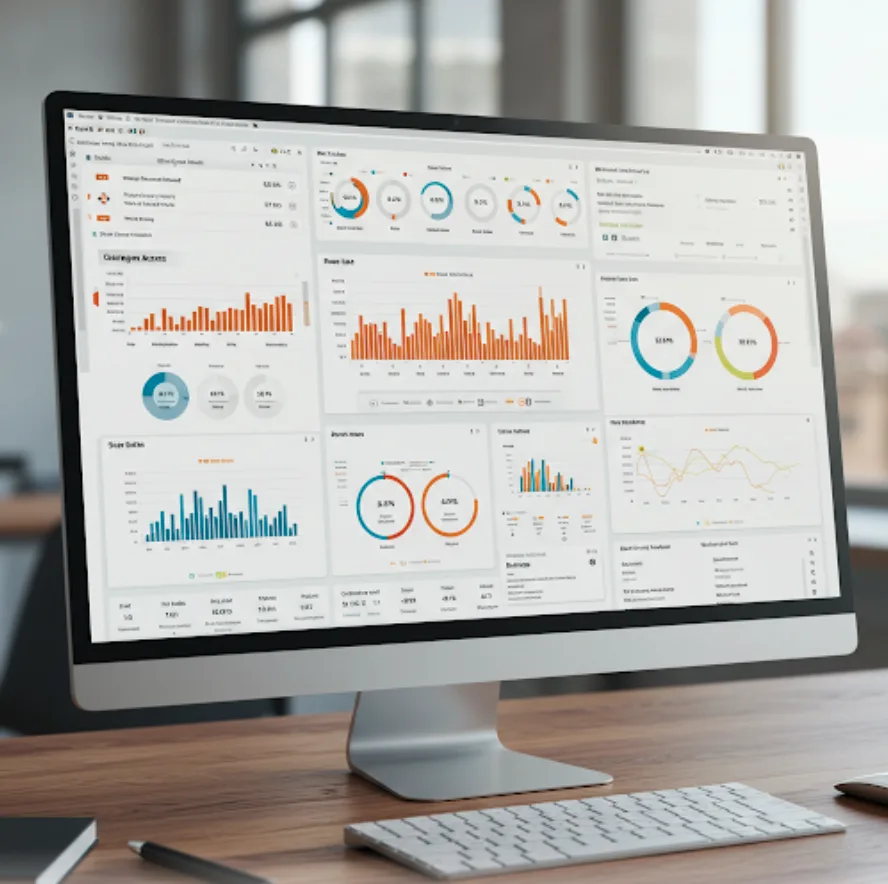Fey: Thank you so much for joining us today. We’re excited to hear about how hiring a data scientist has impacted your business. Can you start by telling us a little about your company?
Marcel: Absolutely, and thanks for having me. We specialize in ventilation installations—everything from residential systems to commercial HVAC systems. We acquired our first business about three years ago, and it had been running for a while before we took over. Since then, we’ve been working hard to grow the company and modernize its operations. We reached a point where we realized we needed a more data-driven approach to fuel that growth, which led us to hire a data scientist partner.
Fey: That’s a great background. So, what was it that made you decide to bring a data scientist on board? What challenges were you facing that led you to that decision?
Marcel: When we took over, the business had great potential, but there was a lot of untapped opportunity. The operations were a bit traditional and reactive—there wasn’t much use of data to inform decisions. We had challenges in understanding our customer base better, refining our marketing efforts, and optimizing scheduling. We also struggled with pricing strategies—there wasn’t a clear sense of when demand would peak or how to leverage that data to grow sustainably. At that point, we knew we needed someone with expertise in analyzing data to help us make smarter decisions.
Fey: It sounds like there were a lot of moving pieces. How did the data scientist help address some of these challenges?
Marcel: Absolutely, and the data scientist really became an integral part of our team. The first thing he did was audit all the data we already had—customer information, service records, and historical trends. One of the first insights he uncovered was about our marketing. We were spending a significant amount on broad digital advertising, but the data showed that our most profitable customers were located within a specific region. We also found that a certain demographic group was more likely to need our services at certain times of the year.
Fey: That must have been a huge revelation. How did this insight impact your marketing strategy?
Marcel: It was a game-changer. We quickly reallocated our marketing budget to focus on these higher-value customers and tailored our messaging to appeal directly to their needs. This not only improved our return on investment, but it also helped us target the right audience with more precision. Instead of casting a wide net, we were now reaching the customers who were most likely to convert, which resulted in higher lead volumes and more consistent business.
Fey: That’s impressive! It sounds like the data scientist wasn’t just focused on marketing but also helped optimize operations. Can you elaborate on that?
Marcel: Exactly. One of the biggest wins was improving our scheduling and logistics. Before, we were sometimes scrambling to fill time slots or running into overbooking issues. The data scientist analyzed service demand patterns over time, and we were able to predict when installations or maintenance calls were likely to surge. This allowed us to proactively adjust our schedules to meet demand more efficiently.
Another key insight was in pricing. He helped us analyze our service prices against market conditions and competitor rates, adjusting them dynamically based on seasonal demand and customer preferences. It made us more competitive and, in some cases, allowed us to capture higher margins without losing customers.
Fey: Those operational improvements sound really impactful. What kind of results have you seen since making these changes?
Marcel: The impact has been significant. Within six months of bringing the data scientist on board, we saw a 30% increase in revenue, driven by better-targeted marketing and more efficient scheduling. Our conversion rates improved by 25%, and our customer retention also got a big boost. With more personalized services and promotions, we built stronger relationships with existing customers, which led to more repeat business.
On top of that, we’ve reduced overhead by optimizing our workforce management. By predicting busy times more accurately, we were able to scale labor resources more effectively, reducing unnecessary overtime and keeping operations smoother.
Fey: Those are some incredible results. If you had to offer advice to other small business Marcels who might be considering hiring a data scientist, what would you say?
Marcel: I’d say that if you’re serious about growth, bringing in a data scientist can be a game-changer. A lot of small businesses think that data analysis is something only big companies need, but that’s not the case. The sooner you start analyzing your data, the sooner you can make more informed, strategic decisions. For us, it was an investment that paid off quickly, but you need to ensure that the person you hire really understands your business and can translate data into actionable insights. It’s a learning process, but it’s worth it.
Fey: Great advice. Thank you so much for sharing your experience with us today!
Marcel: My pleasure! Thanks for having me. It’s been great to talk about how data has transformed our business.


